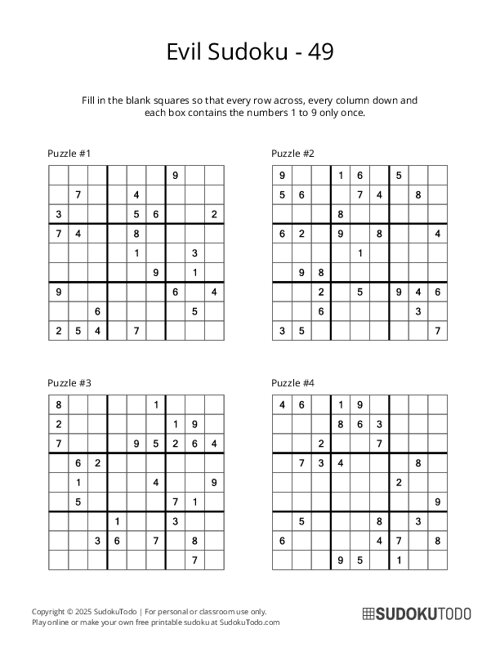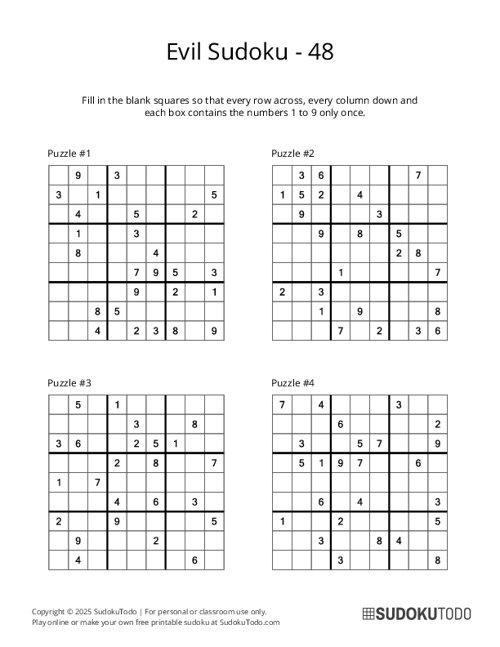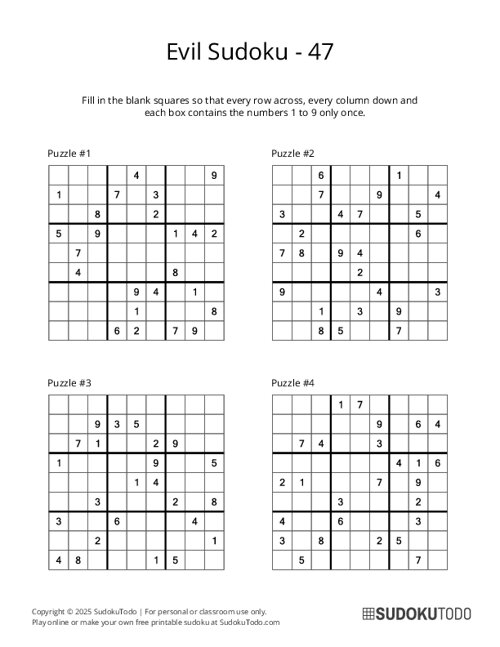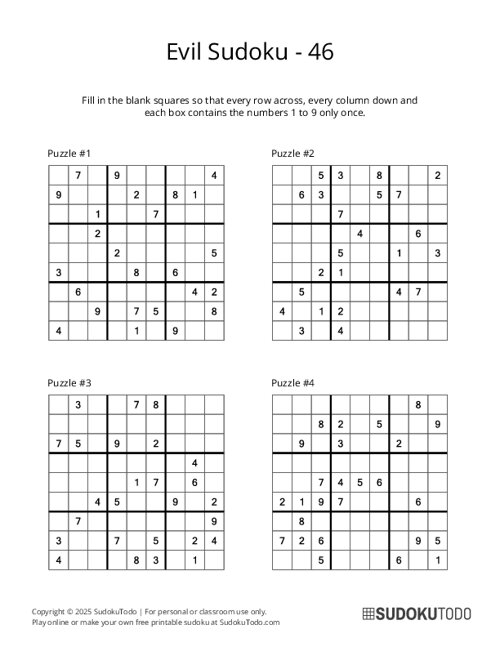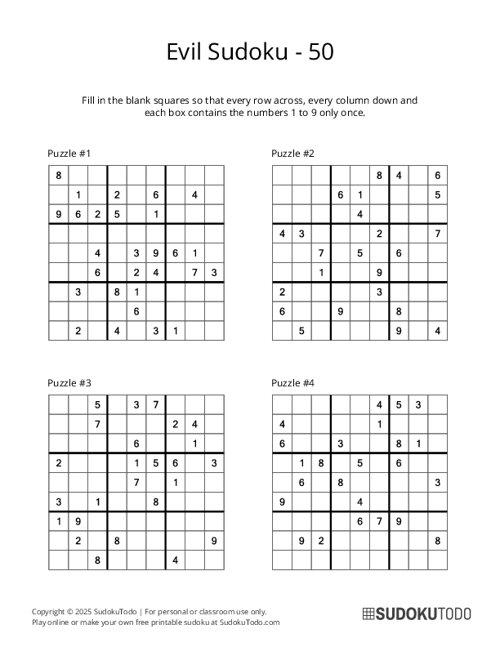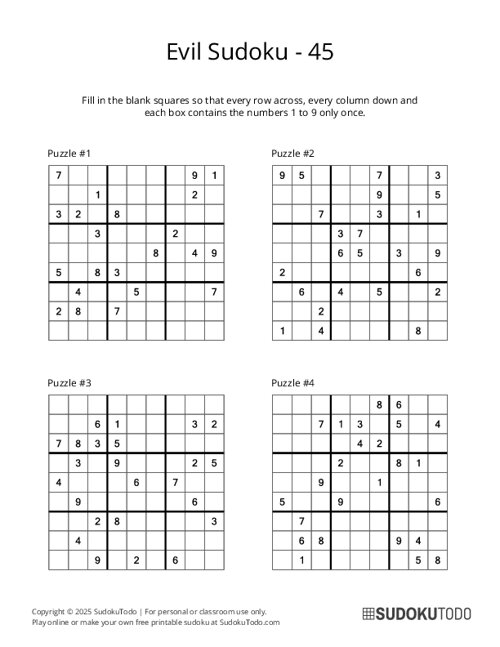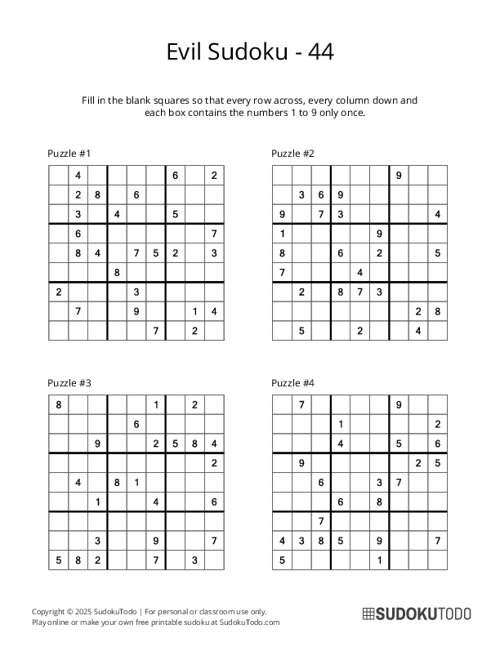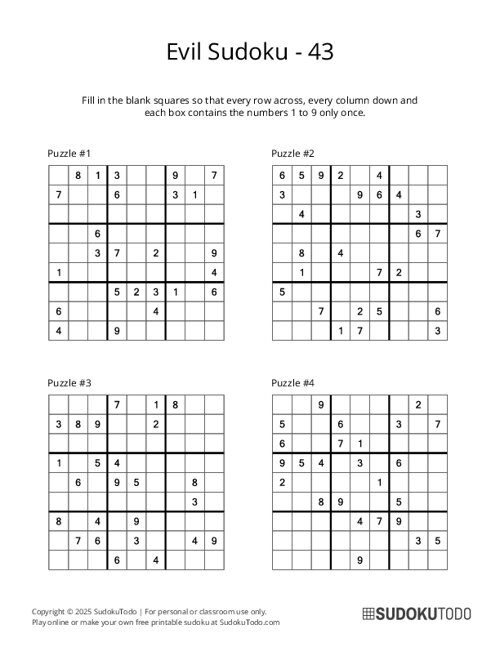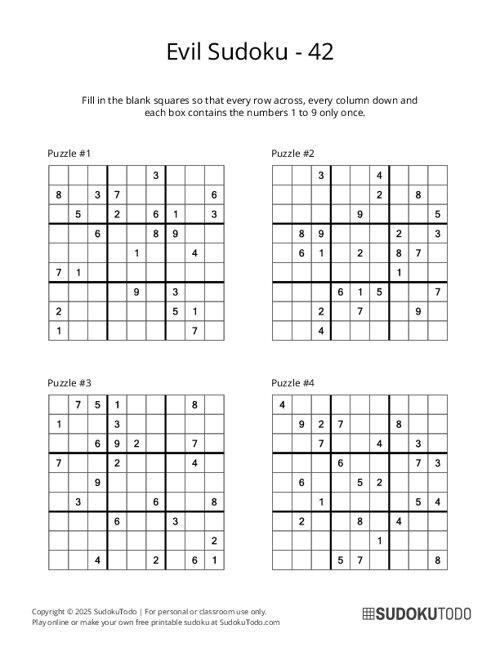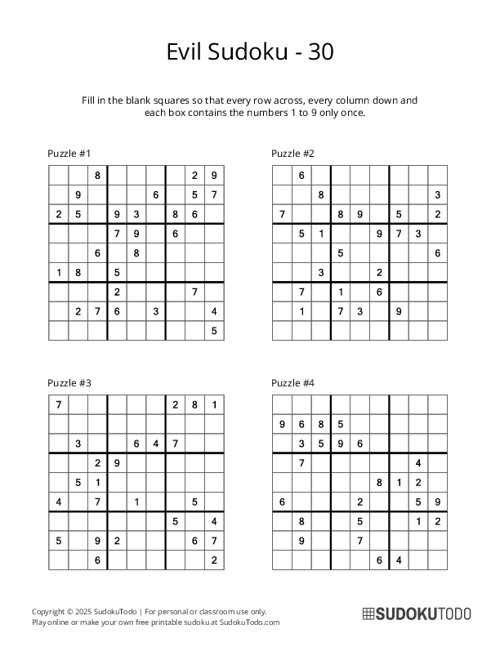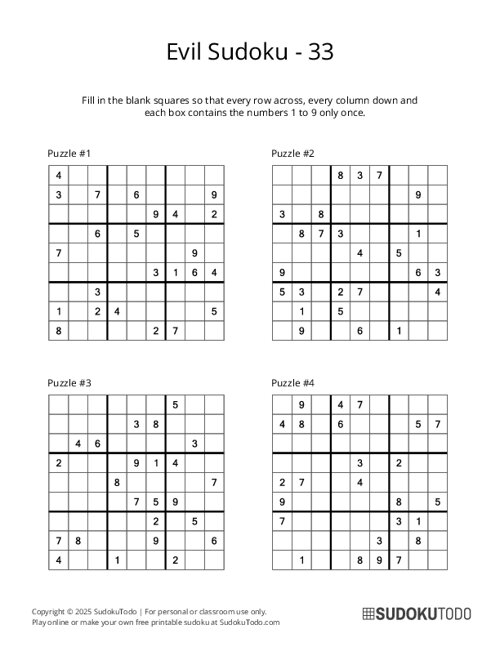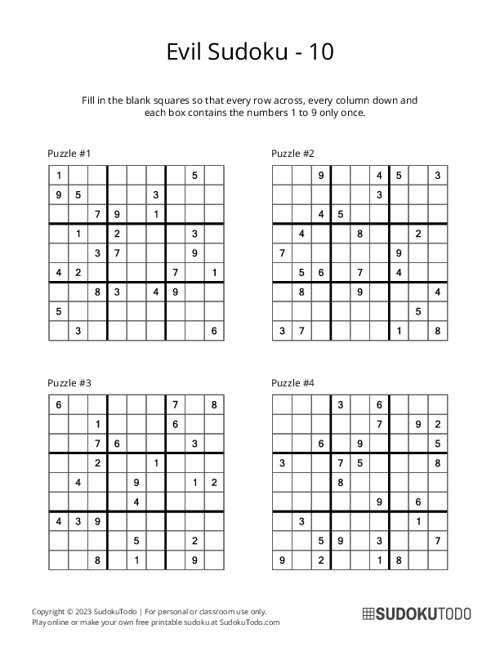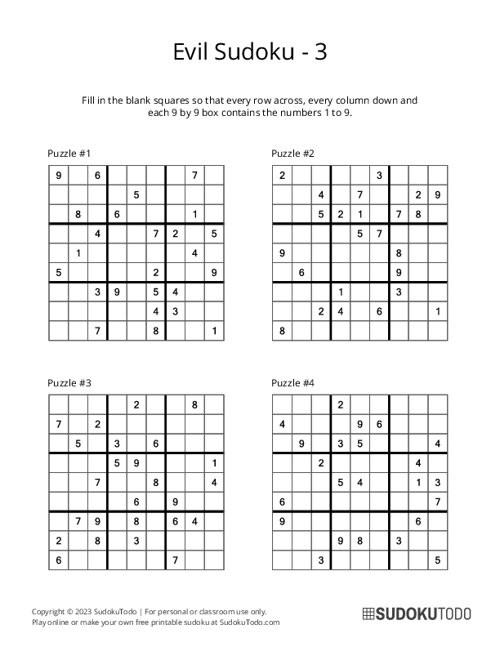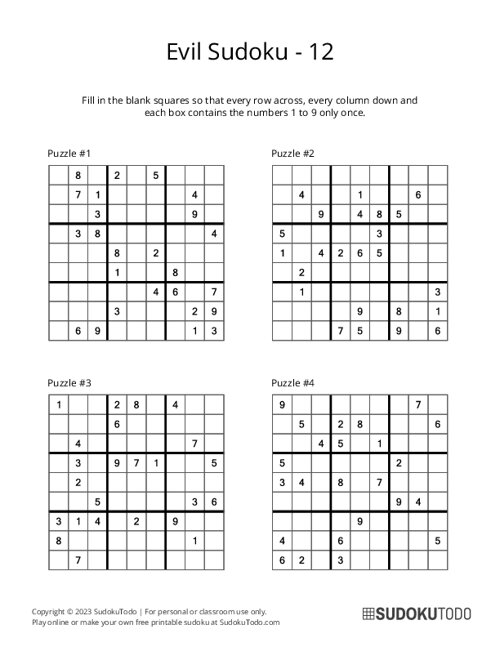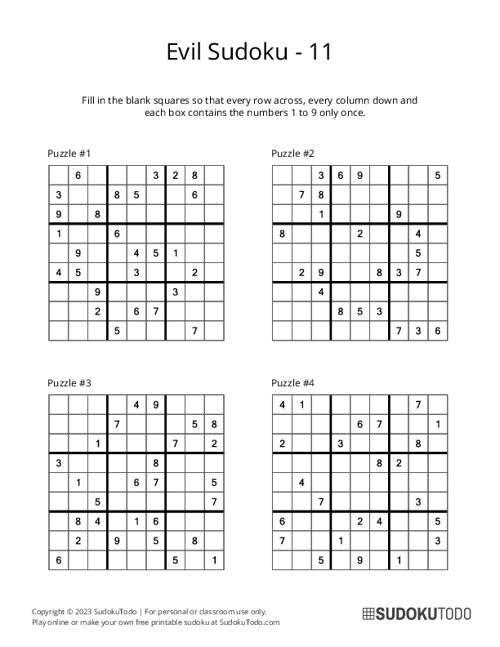Printable Sudoku
- Alphabet
- Battleships
- Binary
- Bridges / Hashi
- Chain Sudoku
- Consecutive
- Cross Sudoku
- Flower Sudoku
- Frame Sudoku
- Futoshiki
- Galaxies
- Greater Than
- Hitori
- Jigsaw Sudoku
- Kakuro
- KenKen
- Killer Sudoku
- Kropki Sudoku
- Little Killer
- Magic Squares
- Nonogram
- Odd Even Sudoku
- Outside Sudoku
- Rossini Sudoku
- Samurai Sudoku
- Sandwich
- Skyscraper
- Slitherlink
- Sohei Sudoku
- Star Battle
- Sudoku
- Sudoku for Kids
- Sudoku Mine
- Sudoku XV
- Sujiken
- Tripledoku
- Tripod Sudoku
- Twodoku
- Vudoku
- Windmill
Special Variations
Generate
Play / Solve
9x9 Evil Sudoku
Tough Sudoku puzzles for experts! Download and print these free 9x9 extreme level puzzles to challenge your brain and improve your problem-solving skills. Great for people who love a difficult mental challenge.
Showing 1-15 of 50 records
Sort by:
You are browsing category 9 x 9 show all
9x9 Sudoku - Evil - 49
9x9 Sudoku - Evil - 48
9x9 Sudoku - Evil - 47
9x9 Sudoku - Evil - 46
9x9 Sudoku - Evil - 50
9x9 Sudoku - Evil - 45
9x9 Sudoku - Evil - 44
9x9 Sudoku - Evil - 43
9x9 Sudoku - Evil - 42
9x9 Sudoku - Evil - 30
9x9 Sudoku - Evil - 33
9x9 Sudoku - Evil - 10
9x9 Sudoku - Evil - 3
9x9 Sudoku - Evil - 12
9x9 Sudoku - Evil - 11
About Sudoku Puzzles
Sudoku is a logic-based, popular number-placement puzzle. The classic Sudoku grid consists of a 9×9 board divided into nine 3×3 sub-grids called "boxes" or "regions." The goal is to fill the grid with digits from 1 to 9 so that each digit appears exactly once in each row, column, and box.
Sudoku puzzles vary in difficulty, ranging from easy to expert, depending on how many digits are pre-filled and the complexity of solving them.
Basic Rules / How to Play
- Grid Size: The puzzle has 9x9 grid size made up of nine 3x3 sub-grids.
- Unique Numbers: Each row, column, and sub-grid must contain all digits from 1 to 9 without repetition.
- Pre-Filled Numbers: The numbers given at the start of the puzzle must remain unchanged.
Solving Tips and Techniques:
- Most Pre-filled Numbers: Start with rows, columns, or boxes with the most pre-filled numbers.
- Scanning: Look for empty cells where only one number is possible based on the existing numbers in the row, column, and subgrid.
- Elimination: If a number can only go into one cell in a row, column, or box, place it there.
- Single Candidates: A cell that can only have one number is filled right away.
- Candidate Lists: Write all the possible numbers in each empty cell. As you fill in numbers, remove the ones that no longer work.
- Naked Pairs / Triples: If two (or three) cells in a row, column, or box can only have the same two (or three) numbers, remove those numbers from the other cells in that row, column, or box.
- Hidden Pairs / Triples: Find numbers that show up in only two or three cells in a row, column, or box, even if there are other possible numbers too.
- Guess and Backtrack: For very challenging puzzles, guess a number and follow through to see if it leads to a valid solution. If not, backtrack and try another possibility.
- Use pencil and paper: Use pencil marks to keep track of possible numbers in each cell
